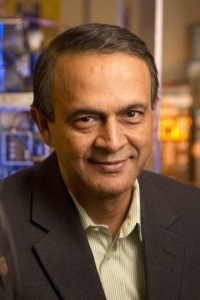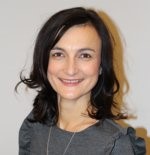Energy Access: Technologies, Impact and The Opportunity for PELS
Organisers: PELS Technical Committee – 12: Energy Access, Deepak Divan, Jelena Popović
Abstract:
Ensuring universal, affordable and sustainable energy access is one of the biggest societal challenges of our time. As of 2020, close to a billion people worldwide live without electricity, and another two billion have unreliable access. The centralized electricity grid is not the optimal choice for remote and rural applications, due to environmental impact, cost, mismatch to user needs and challenges around financial feasibility. Decentralized approaches, such as solar home systems and microgrids, have emerged as a response to shortcomings of the centralized grid approach, but affordability, scalability, interoperability and societal and technical sustainability remain a challenge.
Power electronics is one of the key enabling technologies for context-appropriate and sustainable energy access solutions. The IEEE Power Electronics Society (PELS) engaged with Energy Access through organizing a global challenge – Empower a Billion Lives (EBL), and by including Energy Access as a new and core topic in its long-range planning. Following on the success of the first EBL round, a strong expression of interest in the technologies underlying energy access, and a burgeoning need for decentralized power systems with more autonomous control, Technical Committee – 12: Energy Access is being formed by PELS to provide global technical leadership in this important area.
The panel discussion is centred around a discussion of the key technology gaps in the broader field of energy access, identifying possible solutions that could have great impact in the communities that need them. This discussion can help guide TC-12 in defining areas of activity, and can further put a spotlight on Empower a Billion Lives as a PELS flagship initiative. The panellists will give positioning statements, followed by a moderated discussion on the following topics:
- Technical challenges and opportunities in decentralized systems for energy access and necessity of context-appropriate, impact-driven approach.
- Possible technology topics: DC nanogrids, hyper-efficient appliances, self-organizing microgrids, solar home systems, productive energy use appliances, transactive energy for microgrids, bottom-up clustered microgrids, autonomous inverters, improving battery life, simple easy to use and easy to scale systems.
- Technology gaps based on field experience, major concerns for field practitioners
- TC-12 roles and activities:
- Events, publications, technical leadership in the broader community.
- Empower a Billion Lives: reflecting on the first round of EBL, lessons learned and looking forward to the second round.
- Collaboration with relevant IEEE initiatives (e.g. IEEE Smart Village) and groups as well as outside stakeholders (industry, organizations, foundations, governments etc).
The discussions of this panel are expected to raise enthusiasm for this important topic within the PELS community, stimulate involvement in TC-12 activities and energy access as a topic on the whole. The discussions will also be used as inputs for TC-12 activities including the second round of EBL.
Short Bios of Organizers:
 Dr. Deepak Divan is Professor, John E Pippin Chair, GRA Eminent Scholar and Director of the Center for Distributed Energy at the Georgia Institute of Technology in Atlanta, GA. His field of research is in the areas of power electronics, power systems, smart grids and distributed control of power systems. He works closely with utilities, industry and is actively involved in research, teaching, entrepreneurship and starting new ventures. Dr. Divan also serves as Founder and Chief Scientist at Varentec, in Santa Clara, CA, and was President and CTO from 2011-14, leading the company as it developed its suite of innovative distributed real-time grid control technologies. Varentec is funded by leading green-tech Venture Capital firm Khosla Ventures and renowned investor Bill Gates.
Dr. Deepak Divan is Professor, John E Pippin Chair, GRA Eminent Scholar and Director of the Center for Distributed Energy at the Georgia Institute of Technology in Atlanta, GA. His field of research is in the areas of power electronics, power systems, smart grids and distributed control of power systems. He works closely with utilities, industry and is actively involved in research, teaching, entrepreneurship and starting new ventures. Dr. Divan also serves as Founder and Chief Scientist at Varentec, in Santa Clara, CA, and was President and CTO from 2011-14, leading the company as it developed its suite of innovative distributed real-time grid control technologies. Varentec is funded by leading green-tech Venture Capital firm Khosla Ventures and renowned investor Bill Gates.
Dr. Divan is an elected Member of the US National Academy of Engineering, member of the National Academies Board on Energy and Environmental Systems, a Fellow of the IEEE, past President of the IEEE Power Electronics Society, and is a recipient of the IEEE William E Newell Field Medal. He has 40 years of academic and industrial experience, 65 issued and pending patents, and over 400 refereed publications. He has founded or seeded several new ventures including Soft Switching Technologies, Innovolt, Varentec and Smart Wires, which together have raised >$160M in venture funding. He received his B. Tech from IIT Kanpur, and his MS and PhD degrees from the University of Calgary, Canada.
 Dr. Jelena Popović received the Dipl. Ing. degree from the University of Belgrade, Serbia, and the Ph.D. degree from the Delft University of Technology, Delft, The Netherlands. From 2005 to 2011, she was with the European Center for Power Electronics (ECPE). From 2008 to 2017 she was with the Delft University of Technology as an Assistant Professor. In 2018 she co-founded a start-up in energy access, Klimop Energy. From October 2019, she joined the Power Electronics group of the University of Twente as a part-time Associate Professor. She has published more than 80 publications in scientific journals, magazines and conferences. She has co-authored strategic research agendas, technology roadmaps and white papers in the field of power electronics, energy efficiency, solid state lighting. Her recent interests are bottom-up solutions for energy access, appropriate technology and socio-technical integration.
Dr. Jelena Popović received the Dipl. Ing. degree from the University of Belgrade, Serbia, and the Ph.D. degree from the Delft University of Technology, Delft, The Netherlands. From 2005 to 2011, she was with the European Center for Power Electronics (ECPE). From 2008 to 2017 she was with the Delft University of Technology as an Assistant Professor. In 2018 she co-founded a start-up in energy access, Klimop Energy. From October 2019, she joined the Power Electronics group of the University of Twente as a part-time Associate Professor. She has published more than 80 publications in scientific journals, magazines and conferences. She has co-authored strategic research agendas, technology roadmaps and white papers in the field of power electronics, energy efficiency, solid state lighting. Her recent interests are bottom-up solutions for energy access, appropriate technology and socio-technical integration.
Speakers and presentations:
- Nana Nuamoah Asamoah-Manu, Lighting Africa IFC, Keny
Off-grid solar opportunities and challengesa
- Chetan Singh Solanki, SoULS initative IIT Bombay, India
Social impact, Localization and scaling, Open-source design
- Richard Mori, MeshPower, Rwanda
Nanogrids, Challenges of serving base-of-pyramid
- Felix Boldt, Solar Worx, Germany
Interconnected solar home systems, peer-to-peer energy sharing
- Rajan Kapur, IEEE Smart Village/IIT Mandi, USA/India
IEEE Smart Village, Capacity building
- Deepak Divan, Georgia Institute of Technology, USA (moderator)
Empower a Billion Lives, PELS TC-12 Energy Access, Technology innovation
- Jelena Popovic, University of Twente, The Netherlands (moderator)
PELS TC-12 Energy Access, Impact and context-appropriate technology within TC-12